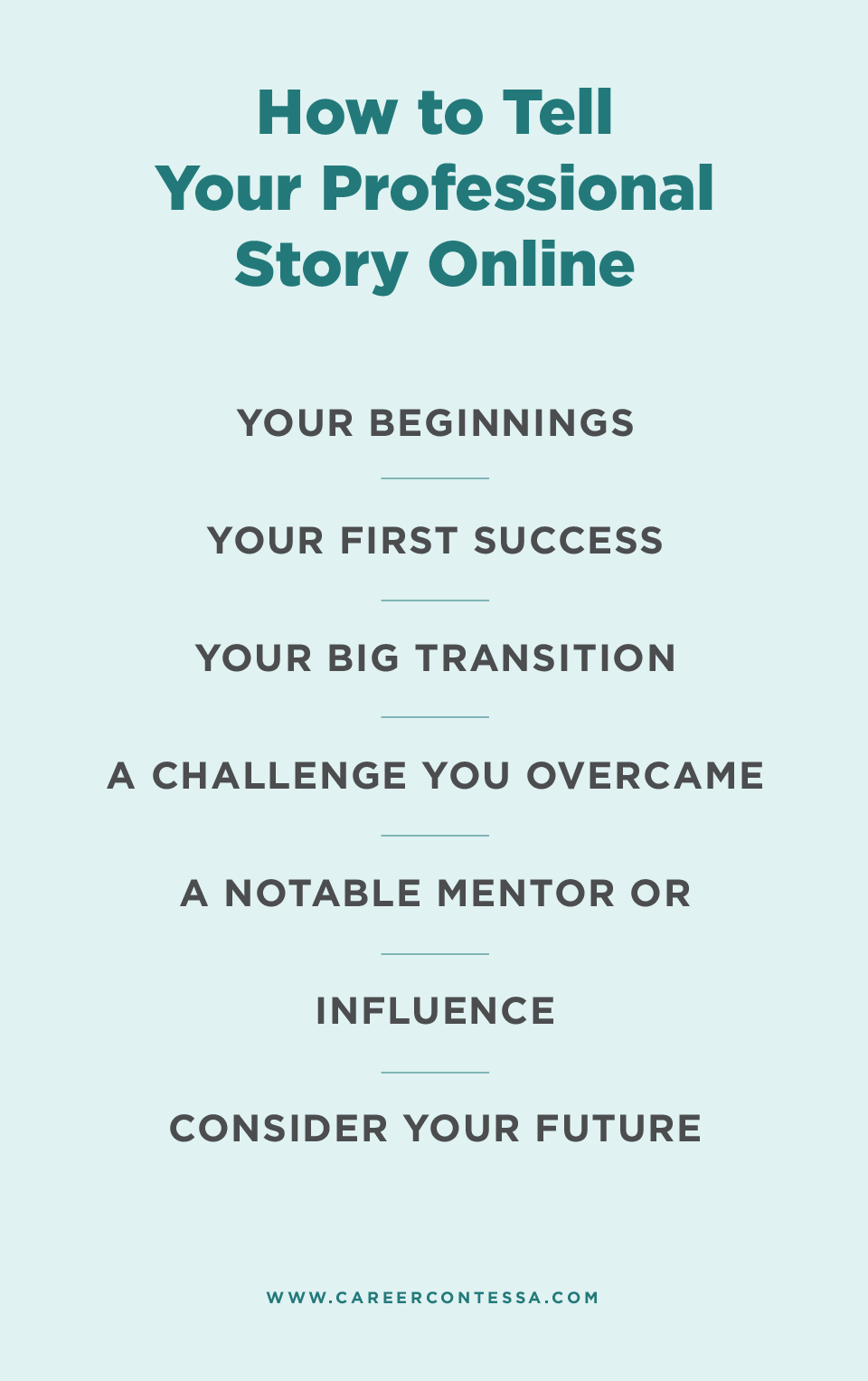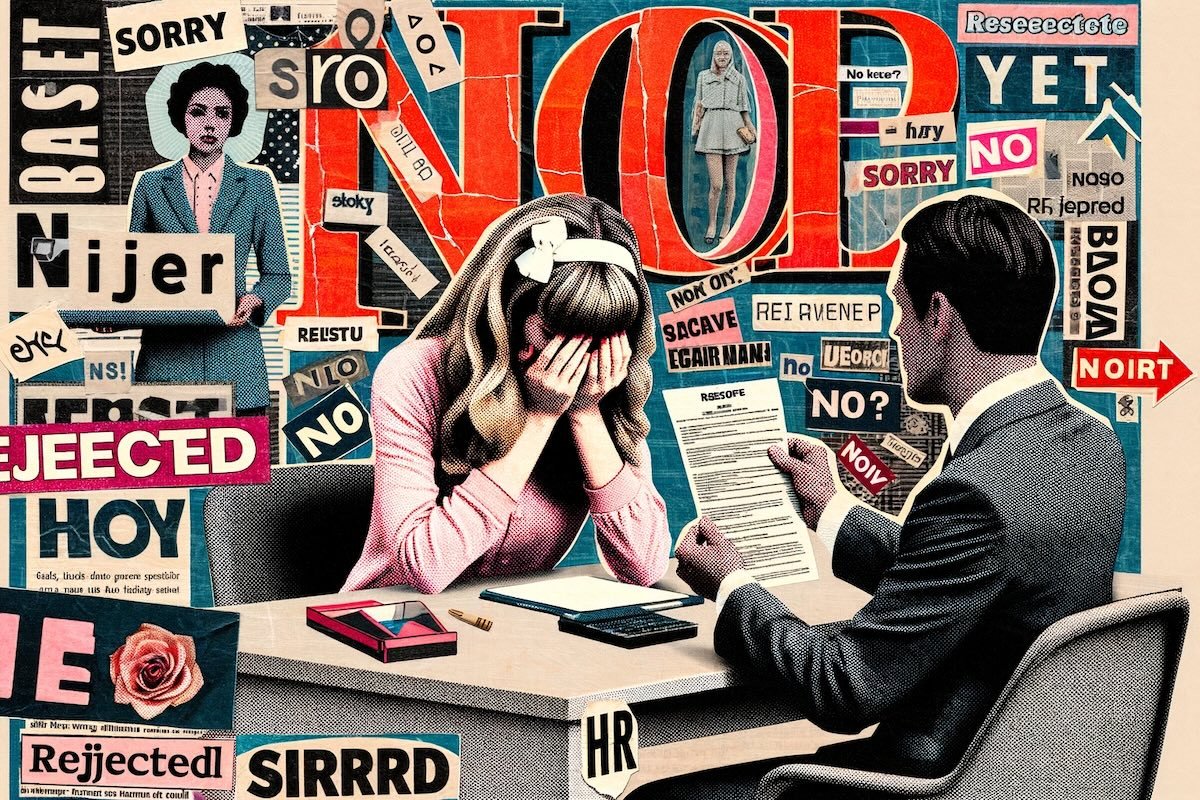We’ve been working on our portfolios, our cover letters, our resumes, and our LinkedIn profiles for what feels like our entire careers.
When we are
making a career transition, gearing up for an important networking event, or starting our own entrepreneurial path, we use these tools to serve as our calling card, our history, and our proof of expertise.
However, there’s one really important element to your cover letters, resumes,
online portfolios, and LinkedIn profiles that you might be missing. It’s the key to successful marketing and advertising.
Did you guess what it is? It’s the element of story.
Here, we will discuss how to infuse your career story into your personal portfolio and how
Squarespace can help you use language, colors, fonts, and photos to tell your story online.
Table of Contents
What is a Career Story?
So, what is a career story, anyway? Is it a long, boring story about endless meetings, failed attempts at job interviews, and never-ending anecdotes about bad bosses? Nope.
Well, your career story is up to you. The bad parts can be included, but try not to center the entire story on the negative. Instead, your career story should be a narrative that describes your growth in both your personal and professional life. It can include anecdotes from your childhood, the classroom, and the boardroom.
Your career story can show unexpected turns and compelling context on how you navigated your different job roles with your own talents and attributes.
6 Stories to Tell About Your Career
Your career story might not be interesting, but you’d be wrong. It's the story of your journey—it’s the road (with all the detours) you took to get where you are today.
Story is arguably the most fundamental element of modern advertising and marketing. The same goes for "marketing" yourself.
Before we discuss the technical aspects of telling your career story—like, where are you actually going to have the opportunity to tell your story—let’s build your story from scratch.
1. Your Beginnings
Maybe you had an inkling—from a very young age—that you were a great salesperson or marketer. We all love a great career story that starts with the lemonade stand.
You might recall a particular lemonade stand where you devised a genius pricing strategy. Two lemonades for the price of one after 3 p.m.? If you can trace your “career story” back to childhood, do it. Be creative. Find the personal connection between where you are today and the first "sign" that you were on your way.
Other Ideas from Your Formative Life Story:
- The first writing competition you entered—and won.
- How you spent your childhood summers "inventing" things
- Your formative heroes in books, television, and movies as a child
2. Your First Success
Once you’ve laid out your origin story, take the next step to draw a line to the first time you experienced success. What made this moment feel so successful? What did you learn from it?
Tell a good story by showing the cause and effect. Show how you used your creative process to lead to your first big success story.
Other Ideas from Your Success Story:
- How you commandeered a group project to lead your team to get that A+++
- The first science fair project where you won first place
- When you won student council president, and realized you wanted to pursue a future in politics
3. Your Growth or Your BIG Transition
Maybe you didn’t know you wanted to be a data scientist from a young age—that’s ok, too. If you had a big career “aha! moment” share it. If you feel like you're reaching too far and can't find a true story about finding your calling before age ten, that's normal.
Don't create a story based on a lie. You'll always want your narrative to have a personal connection. If your narrative is "I still don't know what I'm doing, but I'm working damn hard to figure it out," that is also very compelling.
Our career twists and turns are more exciting than we think. We rarely slow down enough to acknowledge them—and how powerful they really are.
Other Ideas for Your Big Transition:
- How you learned precisely what doesn't work for you
- The moment you finally realized where you were meant to be
- Expressing interest in a new project out of your normal expertise—and completely nailing it.
4. A Challenge You Overcame
You can pretty much guarantee that questions about challenges or obstacles will come up in every interview. Prepare your stories. These might be the same stories that were absolutely horrifying to navigate at the moment. However, when the end result is a massive learning moment, that's where the magic happens.
Take a moment to consider a particularly challenging moment—and the steps you took to overcome it. Whether it was a challenging client or a particularly complicated project, lay out your path to success—and the lessons you took from the entire experience.
Other Ideas for Your Big Challenge:
- How you failed an interview because you were unfocused or too nervous
- A costly mistake you made at work, and how you recovered from it
- A job you absolutely hated, and how it makes you look at future roles
5. A Notable Mentor or Influence
Every successful professional—whether you’re a solopreneur or a trusted employee—likely has a specific person who helped to mold your future. This could be a professor, a former boss, or a professional connection. This is someone who gave you that crucial pieces of advice at the right time—a piece of advice you carry through your entire career.
It could even be someone with whom you had a discordant professional relationship. Sometimes those who teach you what not to do are the most unexpected influences on how you do move forward.
Ideas for Mentors or Influences:
- Your first boss, who may have been tough on you, but who ultimately gave you great advice
- A boss who gave you the opportunity to try something new, and how it completely changed your career path
- A parent or mentor who always believed in your talents
6. Consider Your Future
This may seem like a daunting step, but it’s crucial to imagine what your ideal future could look like. In fact, by putting your vision for yourself into concrete words, you empower yourself to take the necessary steps to achieve them.
Where to Infuse Professional Story
So, you’ve laid out your story. Now, where to put it? Our quick answer is to infuse it—everywhere.
Weave it into your entire portfolio if you’re building a personal website. Use your “About Me” section to tell the story point-by-point. From there, insert your story when describing specific projects you completed, special services you offer, and personal expertise you can bring.
Suppose you are a content marketer looking for some freelance writing or social media work. When describing your services, whether on your LinkedIn or on your personal website, take this opportunity to highlight your story—and how it plays into the skill, meaning, and proficiency of your work.
For example, instead of this sentence offering content marketing writing services:
As a content marketer, I can offer well-researched articles on a variety of topics closely aligned with your company’s solutions.
Try a more story-based description:
Since I was very young, I loved to read. I often spent afternoons with heroines escaping the monotony of life, overcoming, obstacles, and finding unexpected and success. Let me help you find your story, unearth your customers’ pain points, and weave a delightful solution through your company’s services—through your company’s unique voice.
Once you start to pick apart the way you describe yourself, you can begin to color every statement with your story, your challenges, and your specific solutions.
Now that you have your story assembled, use it—and use it everywhere.
- Job interview for a new role
- When discussing your accomplishments
- When giving an elevator pitch
- When updating your LinkedIn, your resume, or your cover letter
- When expanding your professional network
Write out your story in a document and save it. Next time you’re tasked with updating your LinkedIn, writing a cover letter, or updating your resume, simply pull from your story. Since it’s your unique story, you might be surprised at how seamlessly it fits into all of your job search documents.













